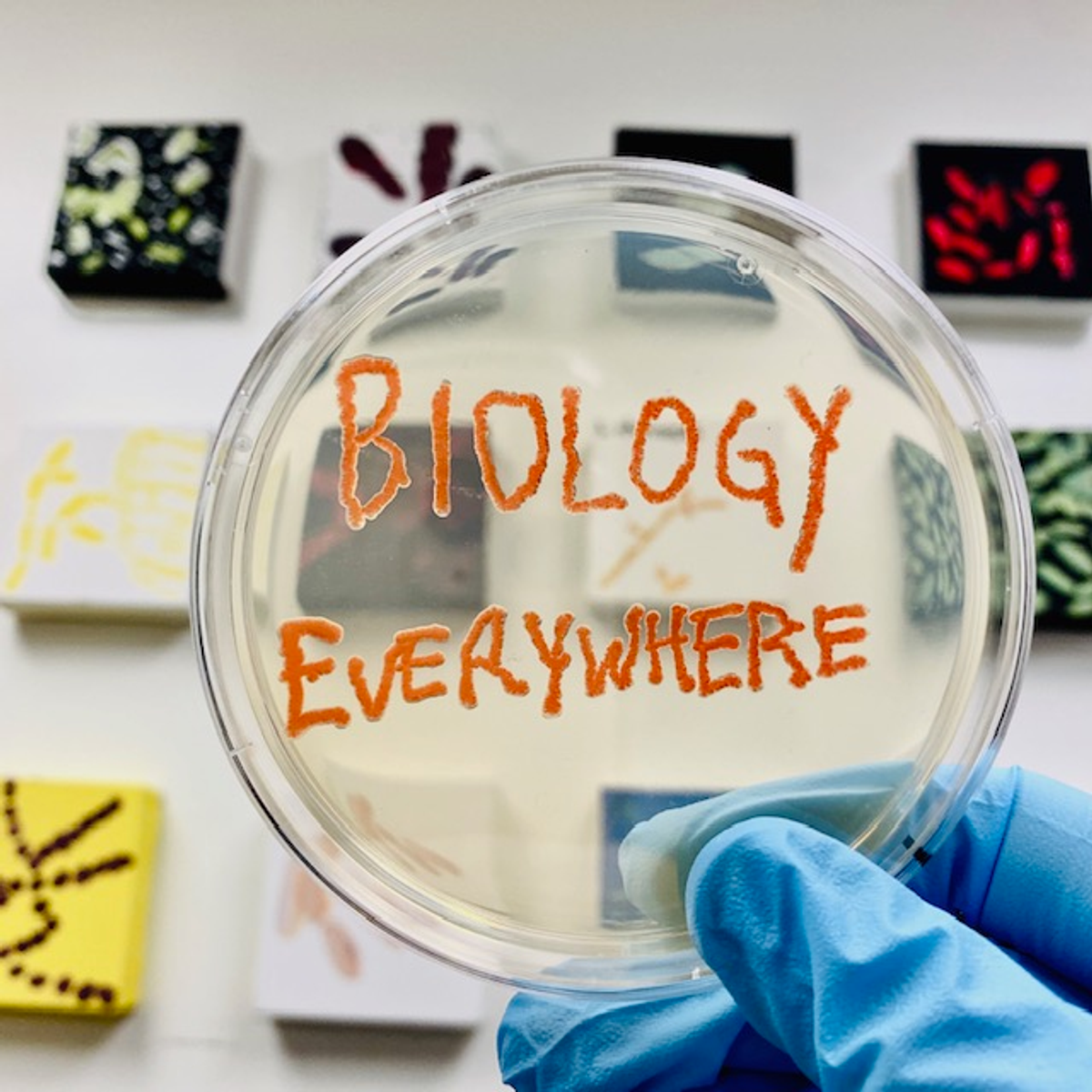
In this course, we will explore the nature of science and biology. We will discuss what the “biology everywhere” philosophy means and the history of the “biology everywhere” project. We will also discuss what science (and biology) are as a discipline of inquiry and how chemistry is foundational to understanding biology.
What's inside
Syllabus
Why Biology Everywhere?
In this module, we'll explore the principles behind biology everywhere and Dr. Peffer's motivation for writing Biology Everywhere: How the science of life matters to everyday life, including the creation of this specialization.
Read more
Syllabus
Good to know
Save this course
Reviews summary
Beginners' biology refresher
Activities
Read 'Biology Everywhere: How the Science of Life Matters to Everyday Life'
Show steps
This book provides a comprehensive overview of the course's main themes, making it an excellent resource for building a foundational understanding.
View
Biology Everywhere
on Amazon
Show steps
-
Read the introduction
-
Read chapters on selected topics
-
Take notes and highlight key concepts
Review High School Biology
Show steps
This course builds on foundational high school biology concepts, so reviewing these topics will provide a stronger foundation for learning.
Browse courses on
Biology
Show steps
-
Review cell biology
-
Review genetics
-
Review evolution
Explore Khan Academy's Biology Modules
Show steps
Khan Academy offers a range of interactive tutorials that can help reinforce the course's concepts.
Browse courses on
Biology
Show steps
-
Create an account
-
Select Biology
-
Choose a module and start watching videos
-
Complete practice exercises
Four other activities
Expand to see all activities and additional details
Show all seven activities
Attend a Workshop on Basic Chemistry for Biology
Show steps
This workshop will provide a deeper understanding of the chemical principles essential for biology.
Browse courses on
Chemistry
Show steps
-
Research and identify relevant workshops
-
Register for the workshop
-
Attend the workshop and actively participate
-
Take notes and ask questions
Develop a Concept Map of Biology's Core Concepts
Show steps
Creating a concept map will help you visualize and organize the relationships between key biological principles.
Show steps
-
Identify the main concepts
-
Establish relationships between concepts
-
Use visual aids like colors, shapes, and lines
-
Review and refine the concept map
Become a Biology Tutor at Your School or Community Center
Show steps
Teaching others can enhance your understanding and retention of biological concepts.
Show steps
-
Contact your school or community center
-
Inquire about tutoring opportunities
-
Prepare lesson plans and materials
-
Tutor students and provide guidance
Contribute to Open-Source Biology Projects
Show steps
Involving yourself in open-source projects allows you to apply biological knowledge and contribute to the wider community.
Show steps
-
Identify open-source biology projects
-
Select a project and understand its goals
-
Contribute code, documentation, or other resources
-
Engage with the project community
Read 'Biology Everywhere: How the Science of Life Matters to Everyday Life'
Show steps
This book provides a comprehensive overview of the course's main themes, making it an excellent resource for building a foundational understanding.
View
Biology Everywhere
on Amazon
Show steps
- Read the introduction
- Read chapters on selected topics
- Take notes and highlight key concepts
Review High School Biology
Show steps
This course builds on foundational high school biology concepts, so reviewing these topics will provide a stronger foundation for learning.
Browse courses on
Biology
Show steps
- Review cell biology
- Review genetics
- Review evolution
Explore Khan Academy's Biology Modules
Show steps
Khan Academy offers a range of interactive tutorials that can help reinforce the course's concepts.
Browse courses on
Biology
Show steps
- Create an account
- Select Biology
- Choose a module and start watching videos
- Complete practice exercises
Attend a Workshop on Basic Chemistry for Biology
Show steps
This workshop will provide a deeper understanding of the chemical principles essential for biology.
Browse courses on
Chemistry
Show steps
- Research and identify relevant workshops
- Register for the workshop
- Attend the workshop and actively participate
- Take notes and ask questions
Develop a Concept Map of Biology's Core Concepts
Show steps
Creating a concept map will help you visualize and organize the relationships between key biological principles.
Show steps
- Identify the main concepts
- Establish relationships between concepts
- Use visual aids like colors, shapes, and lines
- Review and refine the concept map
Become a Biology Tutor at Your School or Community Center
Show steps
Teaching others can enhance your understanding and retention of biological concepts.
Show steps
- Contact your school or community center
- Inquire about tutoring opportunities
- Prepare lesson plans and materials
- Tutor students and provide guidance
Contribute to Open-Source Biology Projects
Show steps
Involving yourself in open-source projects allows you to apply biological knowledge and contribute to the wider community.
Show steps
- Identify open-source biology projects
- Select a project and understand its goals
- Contribute code, documentation, or other resources
- Engage with the project community
Career center
Biochemist
Biology Teacher
Biomedical Engineer
Biostatistician
Environmental Scientist
Science Writer
Forensic Scientist
Physician Assistant
Medical Doctor
Microbiologist
Geneticist
Clinical Laboratory Scientist
Toxicologist
Pharmacist
Registered Nurse
Reading list
Share
Similar courses
OpenCourser helps millions of learners each year. People visit us to learn workspace skills, ace their exams, and nurture their curiosity.
Our extensive catalog contains over 50,000 courses and twice as many books. Browse by search, by topic, or even by career interests. We'll match you to the right resources quickly.
Find this site helpful? Tell a friend about us.
We're supported by our community of learners. When you purchase or subscribe to courses and programs or purchase books, we may earn a commission from our partners.
Your purchases help us maintain our catalog and keep our servers humming without ads.
Thank you for supporting OpenCourser.



